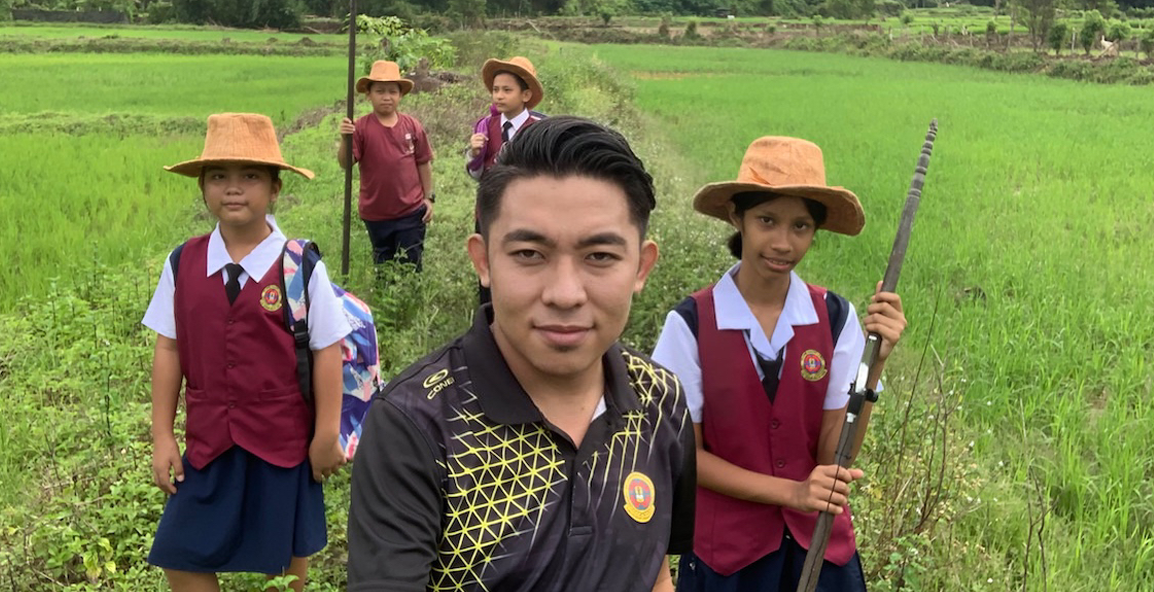A Tamil school with a Chinese name has only one Standard 1 student and it’s a Malay boy?!
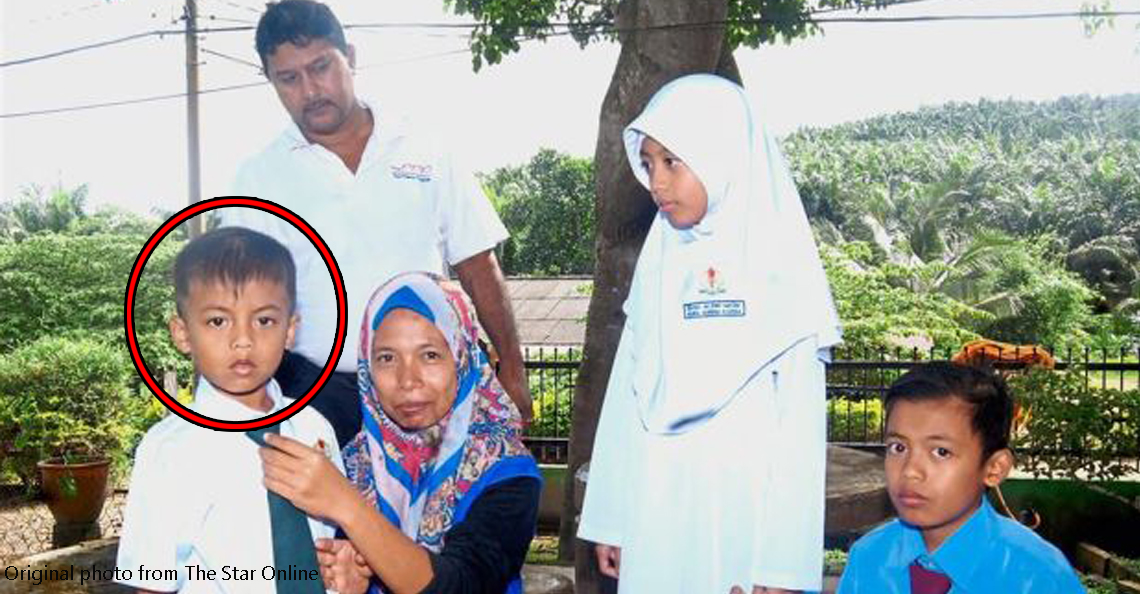
- 8.4KShares
- Facebook8.2K
- Twitter14
- Email35
- WhatsApp74
The new year has come and gone, and there’s plenty to look forward to, including the start of the academic year… which means the return of traffic jams because kids are back in school 😥 . But school days are a sacred time, little ones full of hope and cheer heading back to school to get some knowledge and have a good time with their friends.

But you might have a slightly different experience if you were 7 year old Muhammad Hariz Asyraf, because he is THE ONLY year one student enrolling in SRJK(T) Ladang Ban Heng in Pagoh (Johor) this year!! That’s right, he’s enrolling in a Tamil school with a Chinese name. Ok fine the school is just named after the area it’s built, but so kesian right the boy? All alone.

But how come this school only got 1 new student? To get a clearer picture of what it’s like there, and satisfy our curiosity on some things, we got in touch with Mr. Aravin, who is one of the school’s guru penolong kanan.
Welcome to SJK(T) Ladang Ban Heng, established since 1947
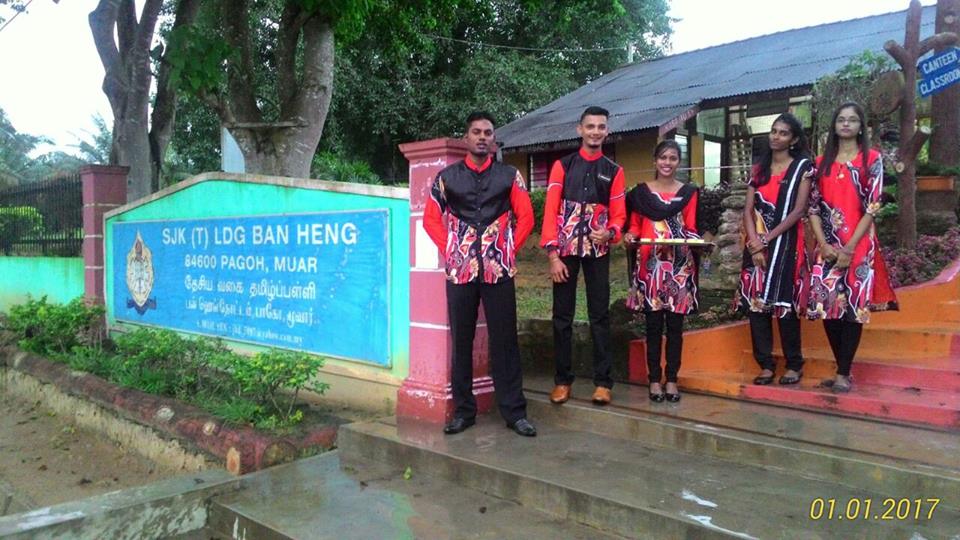
There’s no need to worry for Muhammad Hariz Asyraf, because the little boy will have his headmaster, 11 teachers and 10 other students to keep him company in school, including his elder sister and brother. You could even say he can mature faster, as he’ll be hanging out with much older peers, and he can finally learn Tamil to find out if his siblings are talking bad stuff about him  (Plus he’ll never need to experience traffic jams).
(Plus he’ll never need to experience traffic jams).
“My husband and I want our children to pick up a new language and are proud they can speak Tamil.” – Norilam Abd Azizi, Hariz Asyraf’s mom, quoted from The Star Online
If, like us, you tried to find the school on google maps, the situation of the school starts to become very clear. Take a look:
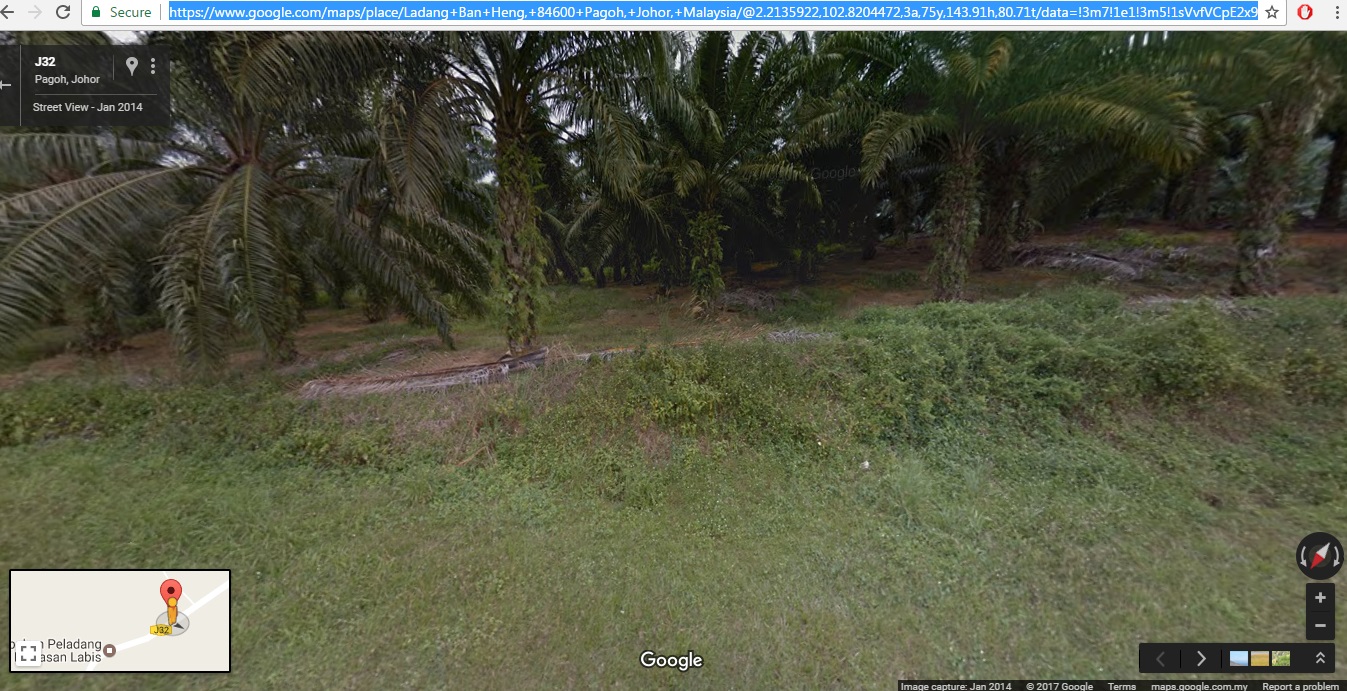
No, this isn’t some secret school for kids with super powers. It’s almost literally in the middle of nowhere, as this is the only result google maps will give for “Ladang Ban Heng”. There wasn’t even any results if you try to search with the school’s name. So it came as a surprise when we managed to find the school’s website (YEA, THEY HAVE A WEBSITE), but their location map points to the same location (though what they do have is a funky tune playing on it 24/7).
According the site, the school only has one classroom. Even the office and the library has to be located in there in the same classroom. We also found a Facebook profile with the name of the school. It has a bunch of photos of the first day of school posted up on it, try and see if you can spot Hariz Asyraf.
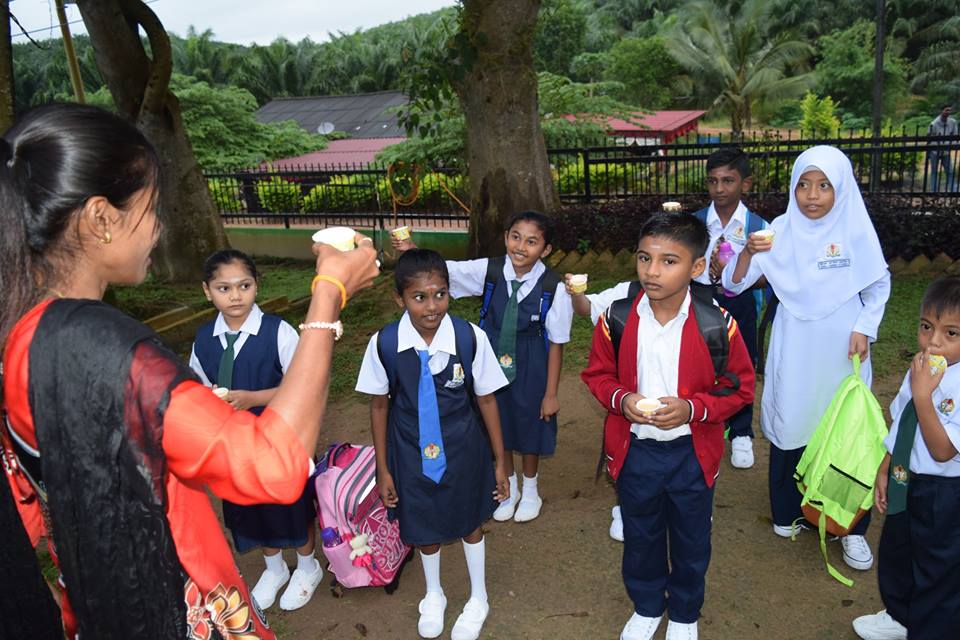
As Mr. Aravin recalls, the school always had around 11- 12 students since 2008. For a few years before that, they used to have more, but that was still only around 20. While 2 students live near the school, most students live around 5 to 11 kilometers away. As for other schooling options, the nearest primary school is about 5 km away, but it’s a Chinese school called SRJK(C) Renchong.
The even more amazing thing is that the school teachers aren’t even living nearby. Most of them either stay near the Johor border and in Melaka. And because there isn’t any option for lodging or hostels nearby, they have to commute ACROSS THE STATES daily to school.
“Some teachers are from Tangkak and Bukit Gambir, they have to drive here and back everyday. That’s about 50km one way.” – Mr. Aravin, in an interview with CILISOS.
To sum it up, its a small kampung school in the palm oil estates for kids that live scattered-ly nearby. If only it were a school for oil palms kids that don’t mind learning Tamil, surely it would be a very impressive school.
What’s happening to our schools? Is M’sia having a shortage of kids?
SJK(T) Ladang Ban Heng isn’t unique in its situation. In fact, there have been many news reports lately about single student enrollments in rural primary schools, and even an entire school that has only one student. And it’s not a problem specific to one type of primary school, even this Chinese school in Penang was trying to attract new pupils by giving students RM 500 incentive.

The Ministry of Education (MoE) classifies schools with less than 150 students as “under-enrolled” or “Sekolah Kurang Murid (SKM)“. According to the Malaysian Education Blueprint 2013-2025, up to 34% of primary schools are under-enrolled!! The MoE also considers these schools in same category as schools for special needs, indigenous and gifted children, as they risks falling behind unless given special attention.
The MoE knows that SKMs are hard to access because there are deep in rural areas, and people in those community might not be able to afford keeping their children in school. As with what Mr. Aravin told us, most of the parents of SJK(T) Ladang Ban Heng students are either estate workers or factory workers.
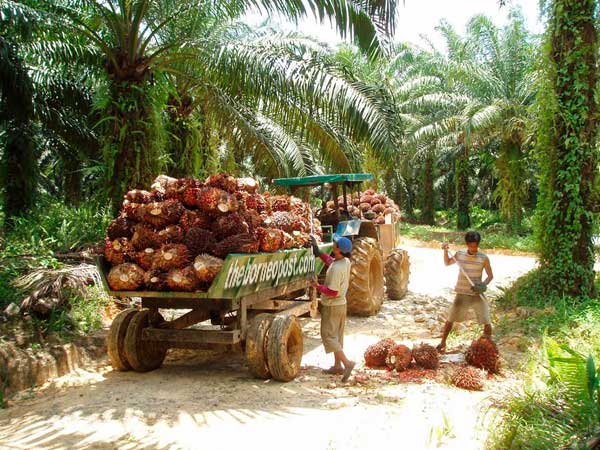
But before we jump to any conclusions, consider that the Annual report 2015: Malaysian Education Blueprint reported 98% rate of enrollment in primary schools in 2015, and yet, SKMs account for only 7% of the total primary school enrollment. So it not like parents aren’t sending kids to school, but rather, a large population of the kids are being concentrated in towns and cities.
Because rather than live in some ulu palm tree estate or orchard, young parents and young people in general tend to seek opportunities in cities, to make a better life for themselves and their family.

Even though the cost per student in under-enrolled schools is 7 times higher, the MoE doesn’t just close down schools willy nilly. The MoE investigates each school on a case-by-case basis, giving the community that depend on the school several options:
- Move: Relocating the school to somewhere with a higher population, while maintaining the name and identity
- Merge: Transfer students to nearby schools of the same type
- Wind-down: Cut down on operations and redeploy teachers, sending eligible students to nearby schools
- Maintain: Change nothing. Though the ministry will assist the school in raising it’s qualities, such as training the teachers for multi-grade classes.
As for future plans of SJK(T) Ladang Ban Heng, Mr. Aravin says that there were some discussion about merging with another school nearby last year, but so far there’s no progression past that yet.
What to do with under-enrolled schools?
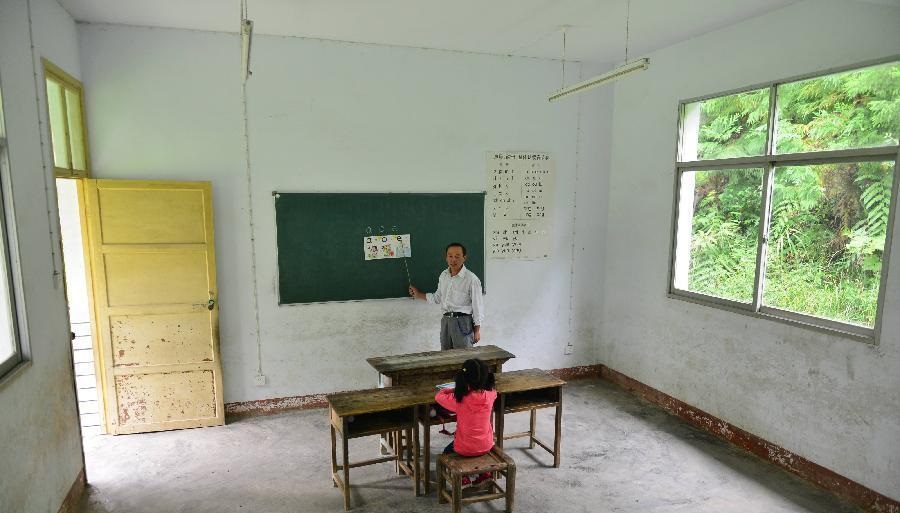
Mr. Aravin says the two biggest challenge of the school is that they lack candidates for joining inter-school competitions, and that it takes some effort when it comes to teaching Tamil to students with no Tamil background. The available infrastructure of the school doesn’t surface as a main problem, but the quality of education and exposure the students are receiving are a bigger concern, at least to Mr. Aravin.
“Its quite difficult to teach Tamil to the Malay kids, you need to teach the word in Bahasa then translate it to Tamil.” – Mr. Aravin, in an interview with CILISOS.
Aside from wanting to make SKMs more cost efficient, the MoE is also looking for ways to help students in SKMs perform better. Learning from top-performing SKMs, the MoE is rolling out a School Improvement Toolkit to provide training for other SKMs to improve.
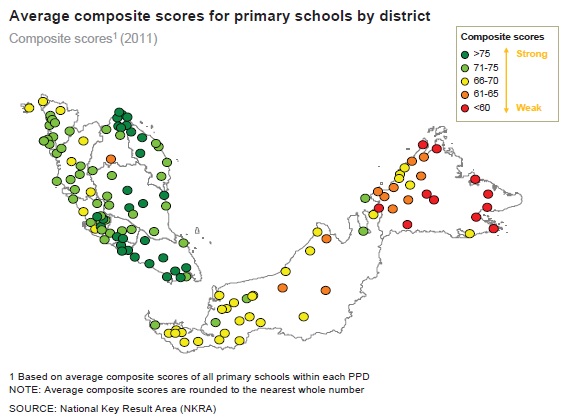
Relocation or merging the schools has its own challenges as well. It might take a long time because they have to go through the process of acquiring land and constructing new facilities. Plus, all that would require funds, funds they might not have.
Nonetheless, it’s good to know that our primary school kids are being taken care of. In fact it’s pretty cool to see the SKMs like SJK(T) Ladang Ban Heng are creating such a great opportunity for different races to learn about one another, and even learning each other’s language.
“We are a close-knit community at the oil palm estate and have no problems mixing with all races.” – Norilam Abd Azizi, Hariz Asyraf’s mom, quoted from The Star Online
- 8.4KShares
- Facebook8.2K
- Twitter14
- Email35
- WhatsApp74


